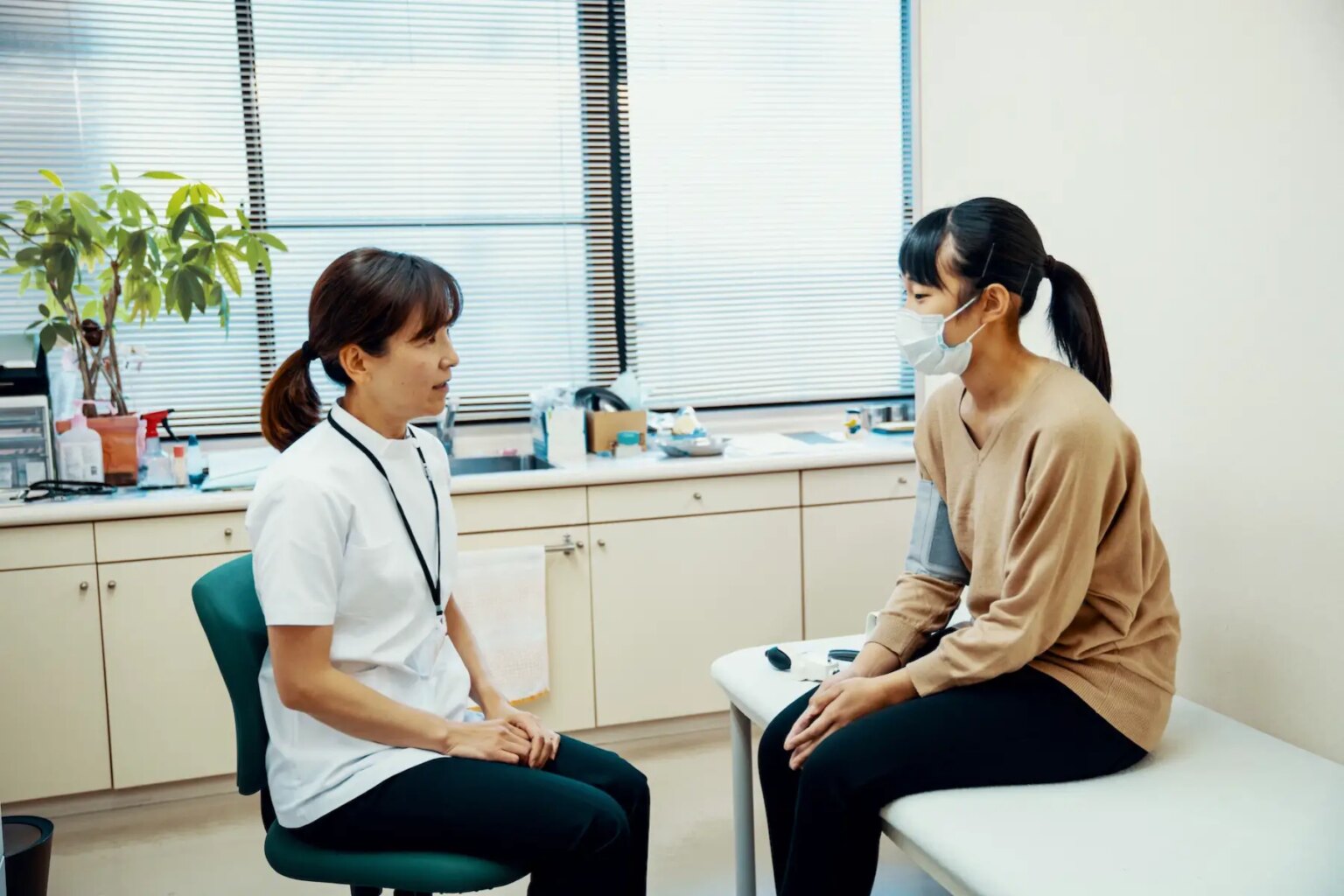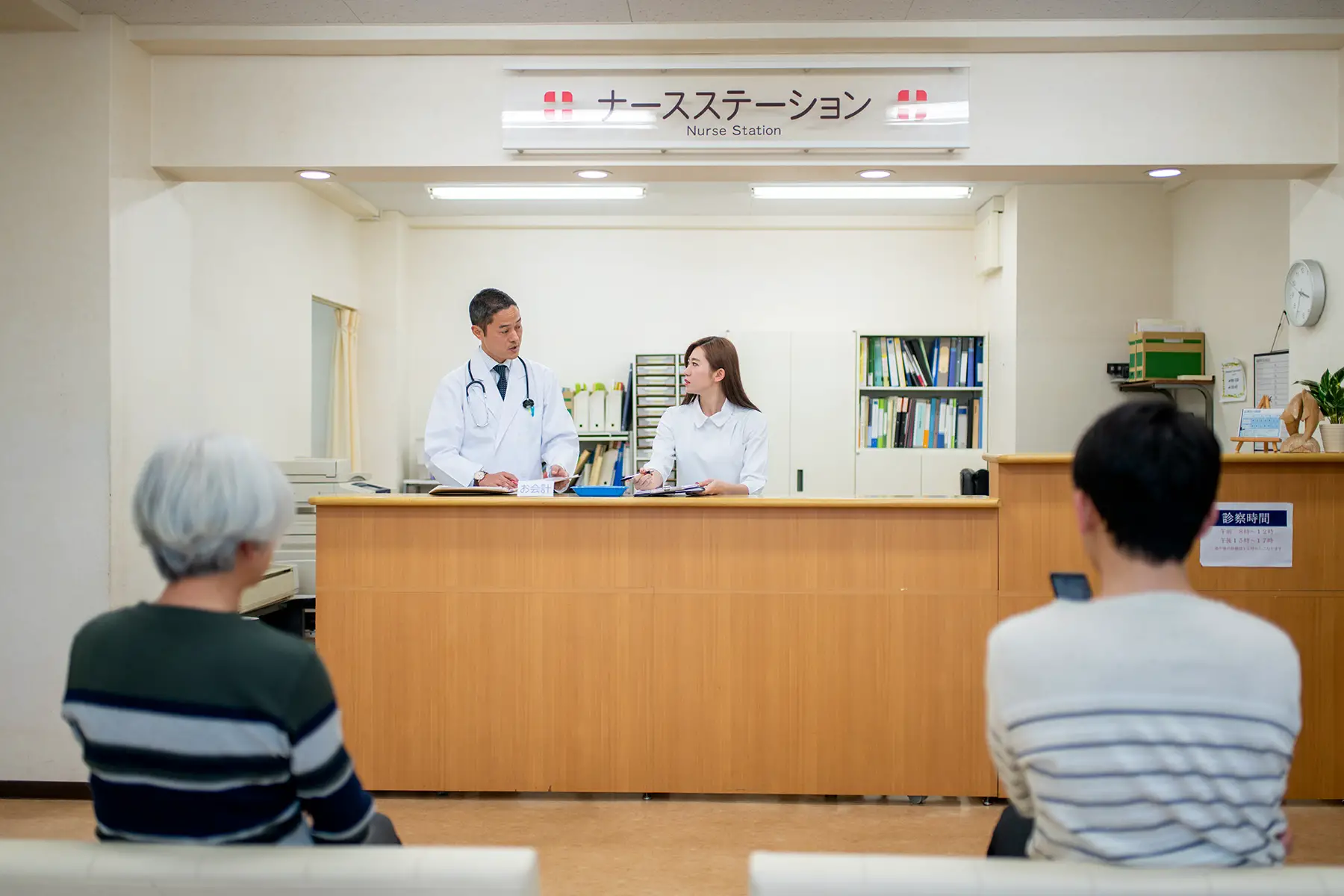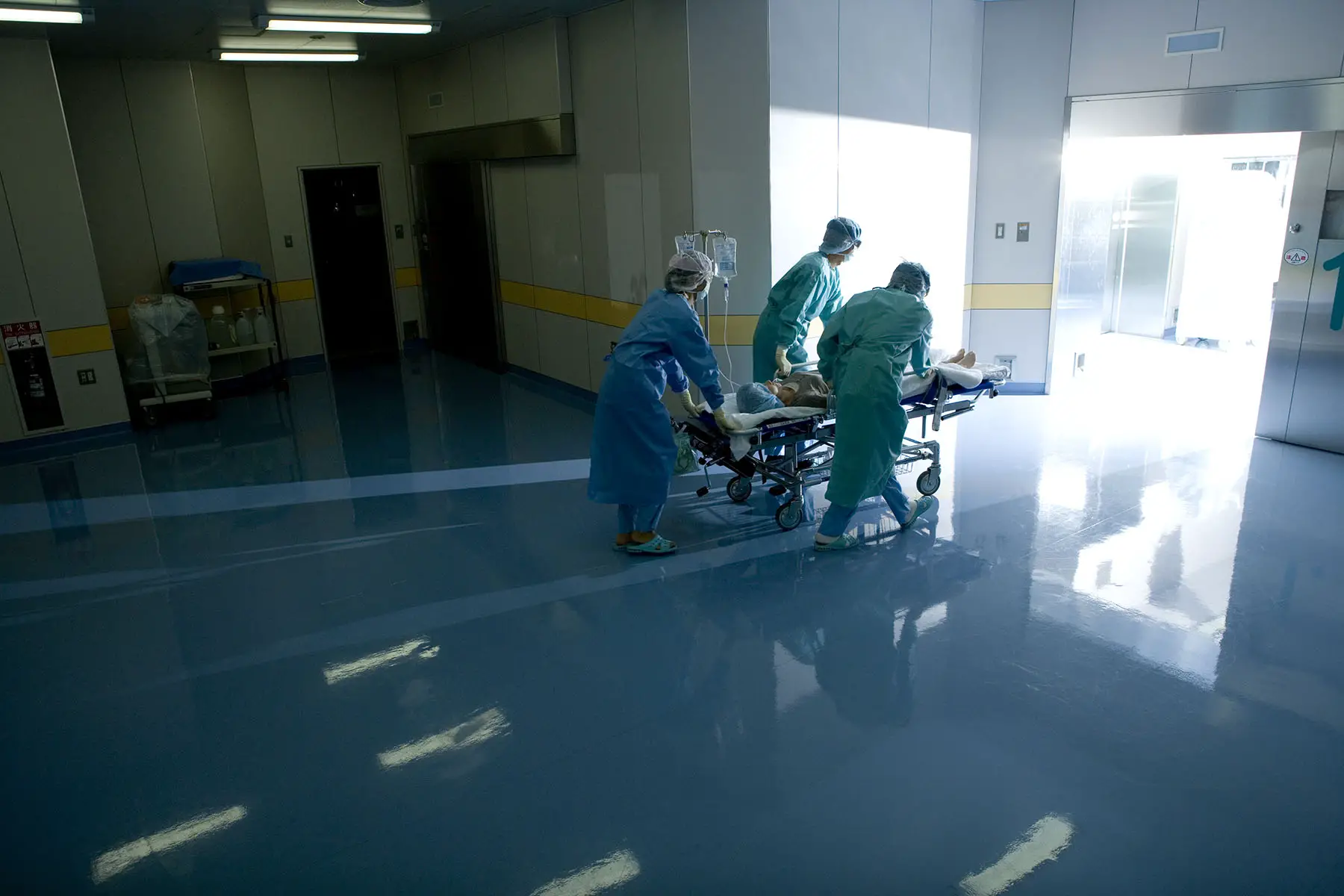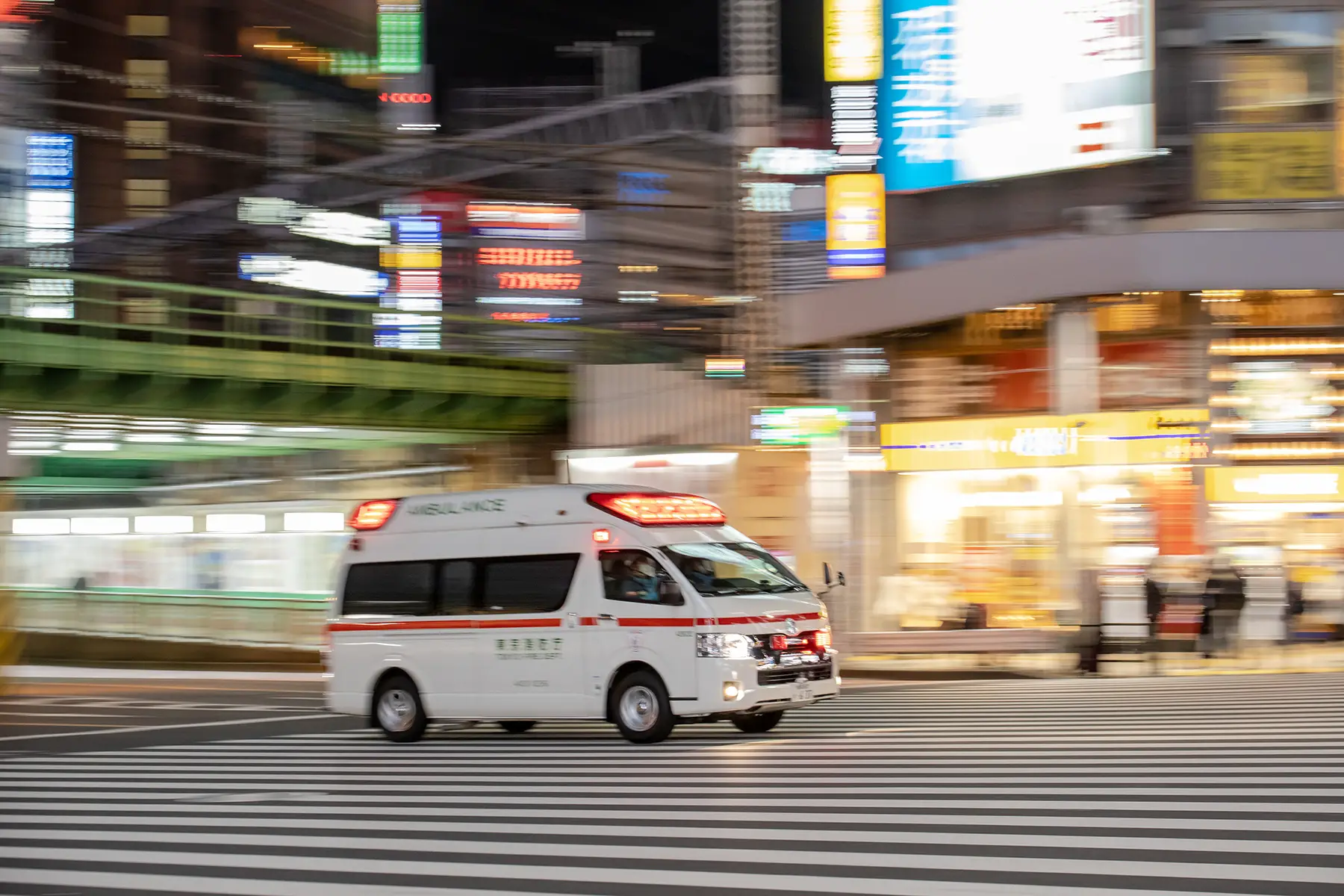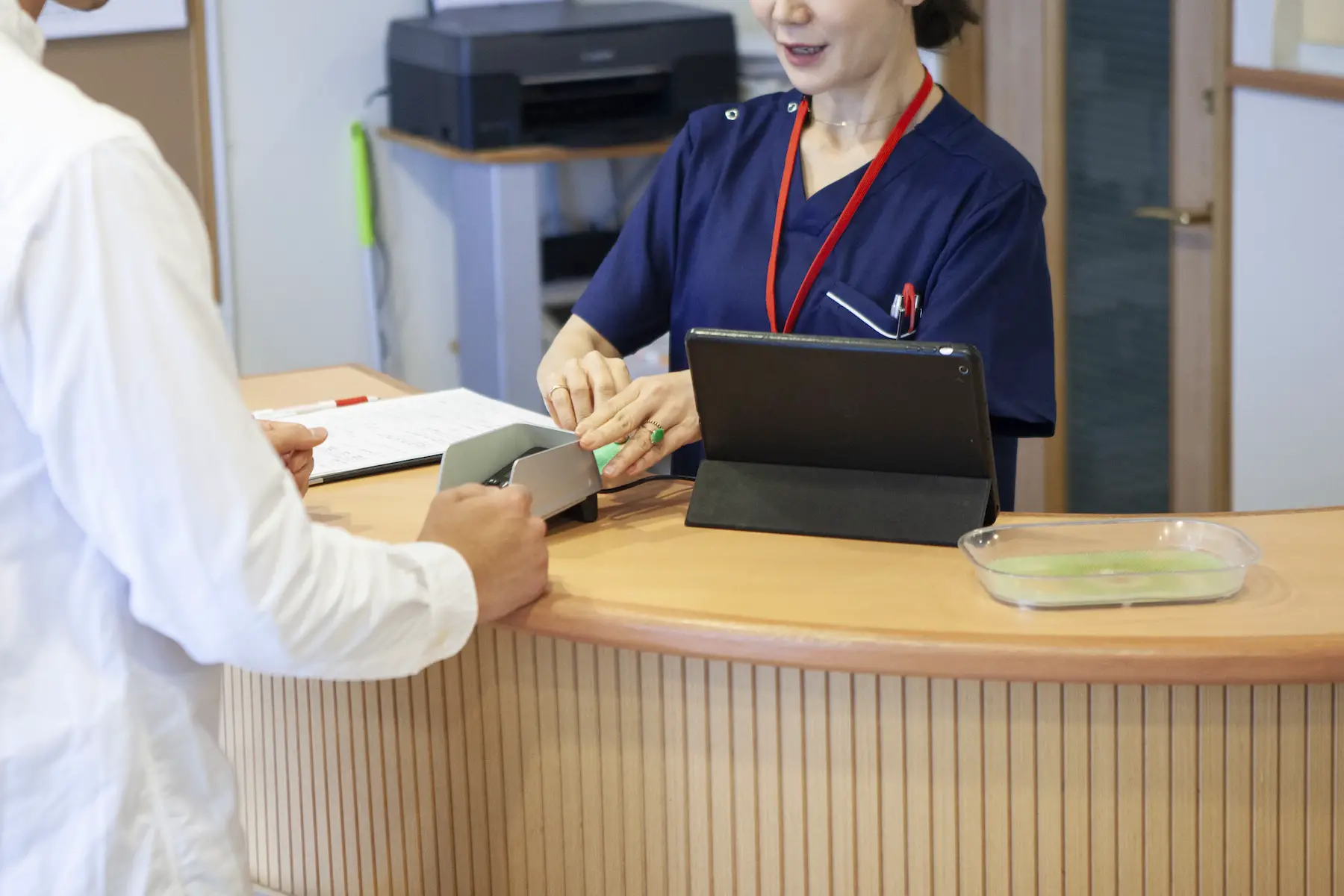Japan’s healthcare system makes accessing doctors easy and efficient, whether you need a quick consultation or a specialist’s expertise. From choosing the right doctor to navigating referrals, we’ll break down how the Japanese system works, where to go, and what to expect when you need care.
Keep reading for more information in the following:
- Overview of doctors in Japan
- Who can see a Japanese doctor?
- How to find a Japanese doctor near me?
- How to see a Japanese doctor or GP: step-by-step
- How much do doctor visits cost in Japan?
- Overview of doctors’ services in Japan
- How to complain about a Japanese doctor or GP
- Practical medical words in Japanese
- Useful resources
Cigna Global
Enjoy peace of mind while living in Japan with Cigna Global’s long-term international health insurance plans (12+ months). Get tailored coverage, direct billing with many providers, complex case management, and global care on demand, with access to a network of 1.5+ million doctors, specialists, and therapists.
Overview of doctors in Japan
Japan has a universal healthcare system that covers nearly 99% of its residents, including long-term expats. The system is funded through a combination of public and private health insurance, which ensures that everyone can access a broad range of medical services, including doctor visits (医者) and emergency care.
According to the Ministry of Health, Labour, and Welfare of Japan (MHLW), the country has relatively few doctors compared to the rest of the G7 (Canada, France, Germany, Italy, the UK, and the US). In 2020, there were 2.6 doctors per 1,000 residents in Japan (G7 average: 3.5). That said, the number of doctors can vary a lot depending on the location. For example, in 2020, the city of Tokushima had 3.4 doctors per 1,000 patients, while Saitama had just 1.8.
Of these, very few are family doctors; in 2022, the country had just over 1,100 GPs in total, representing a mere 0.3% of all doctors. While this may seem shocking to some expats, the concept of general practitioners (GPs) is relatively new in Japan. Family medicine wasn’t recognized as a medical specialty until 2015. Instead, primary care has traditionally been provided by specialists (e.g., internists and pediatricians).
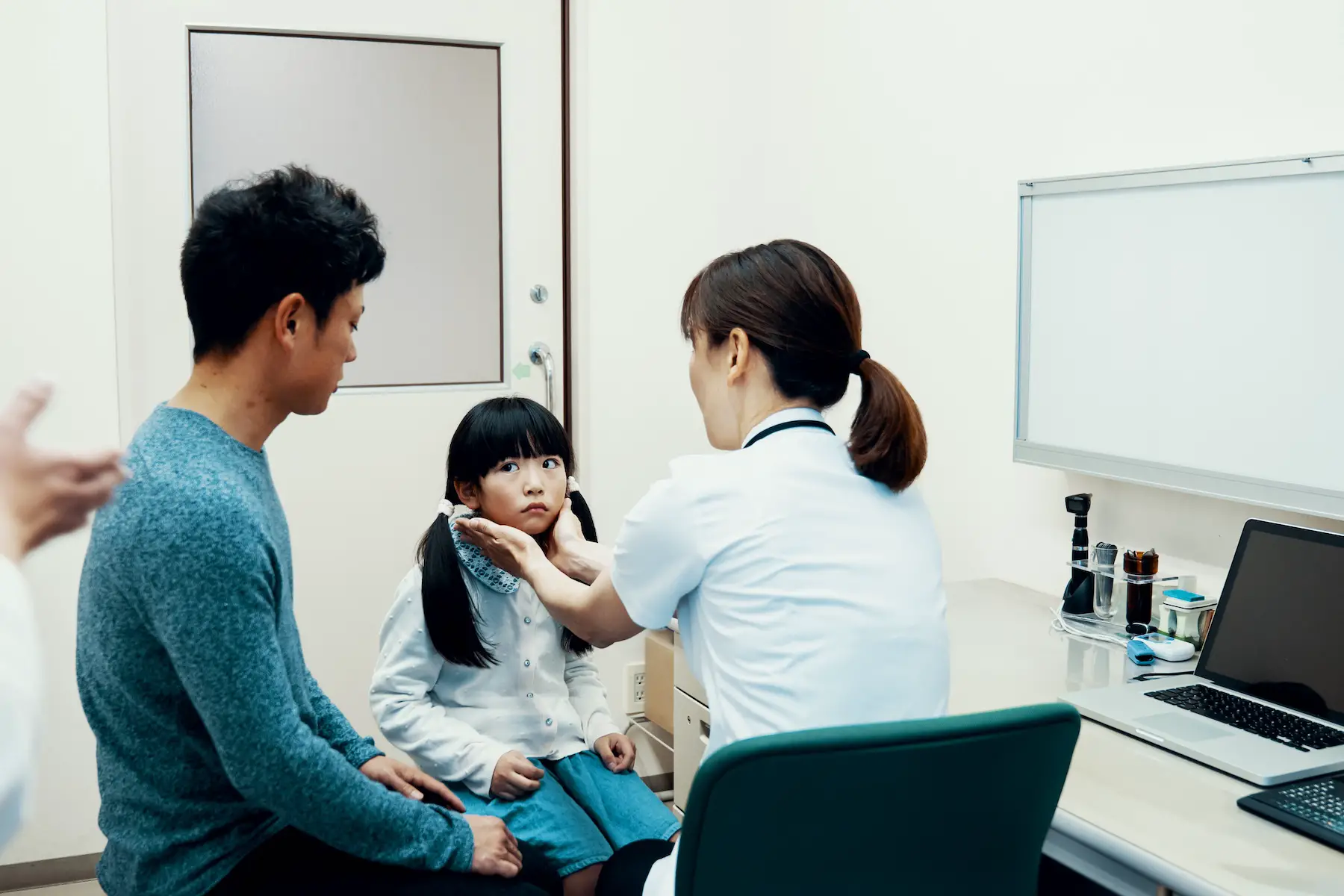
All doctors in Japan must be licensed by the MHLW and entered into the Medical Practitioners Registry (医籍). Unfortunately, this registry is not publicly accessible online; to verify a physician’s credentials or obtain specific information, you’ll need to contact the ministry directly.
Primary care physicians in Japan
The Japanese typically go to their primary care doctor as the first point of contact. These physicians work either in local clinics (診療所) or internal medicine clinics (内科), and you are free to choose whichever doctor you prefer. Regular opening hours are from 08:00 to 18:00, Monday to Friday, and 08:00 to 12:00 on Saturday. Of course, this can vary by location. Most health centers are closed on Sundays and public holidays.
Primary care doctors deal with routine health issues, carry out basic exams, and provide referrals to specialists when necessary. They also maintain your medical records and coordinate ongoing treatment or follow-up care.
Medical specialists in Japan
If you need more specific care, the next step is usually to see a medical specialist (専門医). Japan offers a broad range of specialists in both the public and private healthcare sectors, covering areas such as dermatology, cardiology, orthopedics, pediatrics, and more.
Specialists typically work in hospitals or specialized outpatient clinics. Opening hours vary depending on the facility, but public doctors usually offer consultations from 08:30 to 17:00, Monday to Friday. Private clinics often have slightly longer or more flexible hours, sometimes including Saturday mornings.
You typically don’t need a referral to see a specialist, though it could help you and them identify your medical situation more easily. Many large hospitals also charge you an additional fee (選定療養費) when you visit without a referral (around ¥5,000–7,000+).
Who can see a Japanese doctor?
Everyone can access medical care to some degree or another, including asylum seekers, refugees, and tourists. However, for non-urgent medical help, you have to pay large out-of-pocket costs or have health insurance coverage – either public, private, or both.

Our article on Japanese health insurance covers the topic (and costs!) in more detail, but basically, there are both public and private doctors. While they both work effortlessly to offer you quality care, the difference is in the insurance coverage and availability.
For example, while public services are low-cost with public health insurance, wait times can be long, and doctor visits can be rushed. Private doctors, on the other hand, cost more but have shorter waiting times and offer longer, personalized consultations.
How to find a Japanese doctor near me?
If you are in a life-threatening situation, go to the nearest hospital emergency room (救急外来). You can also call 119, which is Japan’s main emergency number for fire and ambulance services. In major cities, the operator may connect you to a three-way call with an interpreter. In smaller towns or rural areas, English-speaking support may be unavailable, and you must make do with basic English.
Alternatively, you can call the Japan National Tourism Organization’s emergency helpline for 24/7 assistance during an illness, disaster, or other emergency at 050-3816-2787.
If your situation is less immediate (and more you looking for information), you can find hospitals and clinics listed on the website of your local prefecture. And if you’re uncomfortable speaking Japanese, you can find English-speaking doctors through websites like Find a Doc and Medical DOC.
For non-urgent medical issues outside regular opening hours, you can visit a nighttime or holiday clinic (夜間休日診療所). These are usually listed on the website of your city hall or prefecture. You can also use a private service like Fast Doctor (in Japanese), which is available 24/7.
How to see a Japanese doctor or GP: step-by-step
Step 1: Register with your preferred doctor
Japanese residents are free to choose any doctor they want. You can switch physicians freely, and it’s not necessary to register beforehand. However, most people choose to stick with one health clinic for practicality and familiarity.
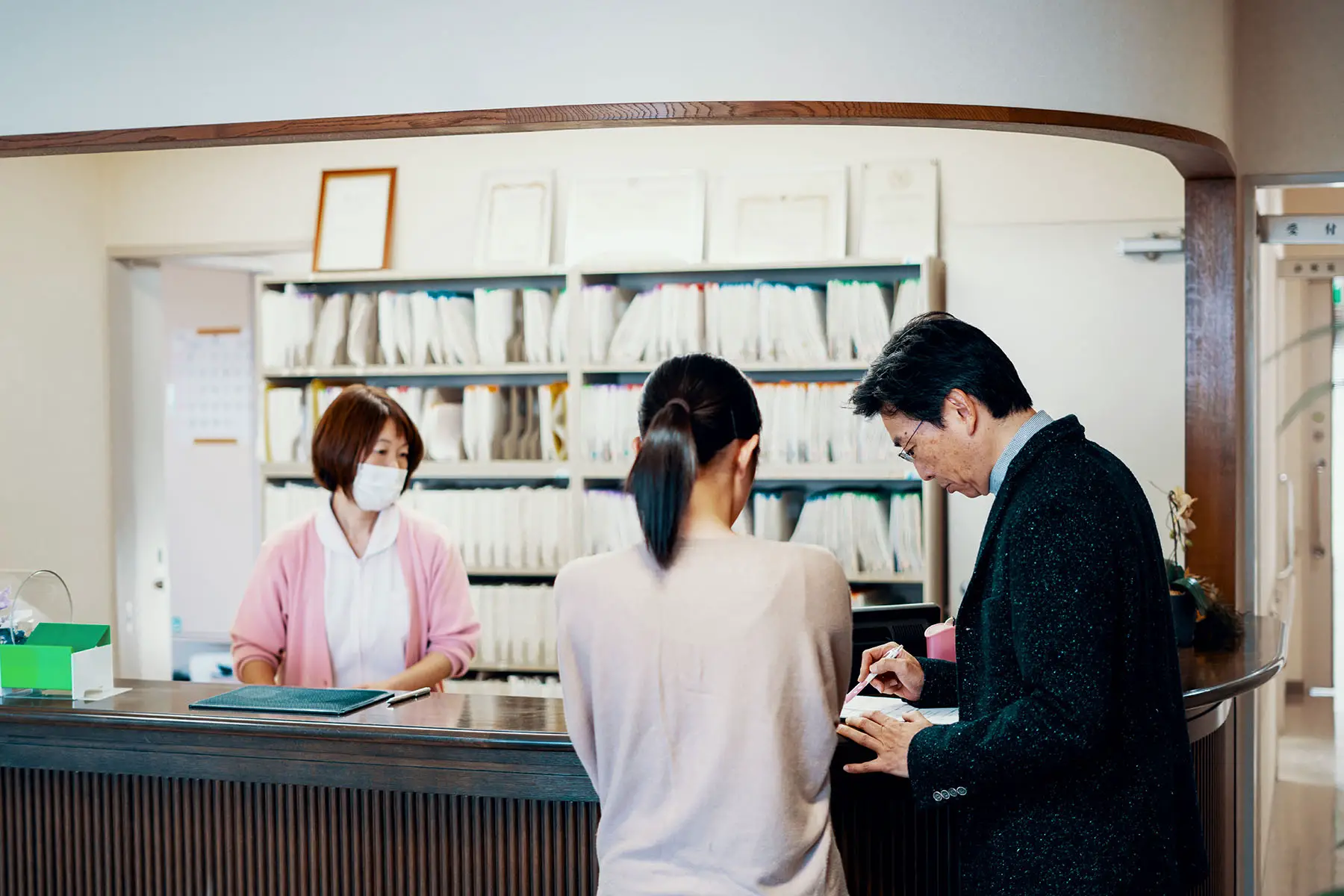
When registering, you’ll need to bring:
- Passport or valid ID
- Resident card
- Health insurance card (保険証)
- Completed standard medical interview
You’ll then receive a clinic card (診察券) to save time checking in for future visits.
Step 2: Book a doctor’s appointment
Walk-in consultations are quite common in Japan, though you’ll often have to wait 30 minutes to a few hours. If you want to skip this step, you can schedule a doctor’s appointment in advance. You can do so with a quick phone call to the clinic or using an online service. Specialists don’t do walk-ins unless it’s for urgent medical situations.
Wait times for public doctors can be long compared to those of private doctors. You can generally expect to wait a few days to see a GP and several weeks (up to 60 days) to see a specialist.
Step 3: Visit the health center
When you go to the scheduled appointment, make sure to bring your clinic card, ID, and wallet. Some hospitals accept credit cards, but most clinics require payment in cash. In this case, there should be an ATM nearby. Home visits are not common in Japan, but can be arranged if the doctor feels that it is necessary.
When talking to the doctor, make sure to use the honorific title sensei (先生). They will ask about your symptoms and recommend follow-up appointments to check your progress or an appointment with a specialist.
If you’re not familiar with Japanese healthcare, your time with the doctor may seem very short. Instead, think of it as one visit split into multiple visits where patients return to the same clinic several times to measure the treatment’s progress. Further appointments treating the same issue are billed at a much lower rate than the initial appointment.
How much do doctor visits cost in Japan?
Public healthcare covers 70% of medical costs, and even more for young adults and pensioners. Japanese public health insurance also has caps on how much a patient can be charged for medical services in a month or year.
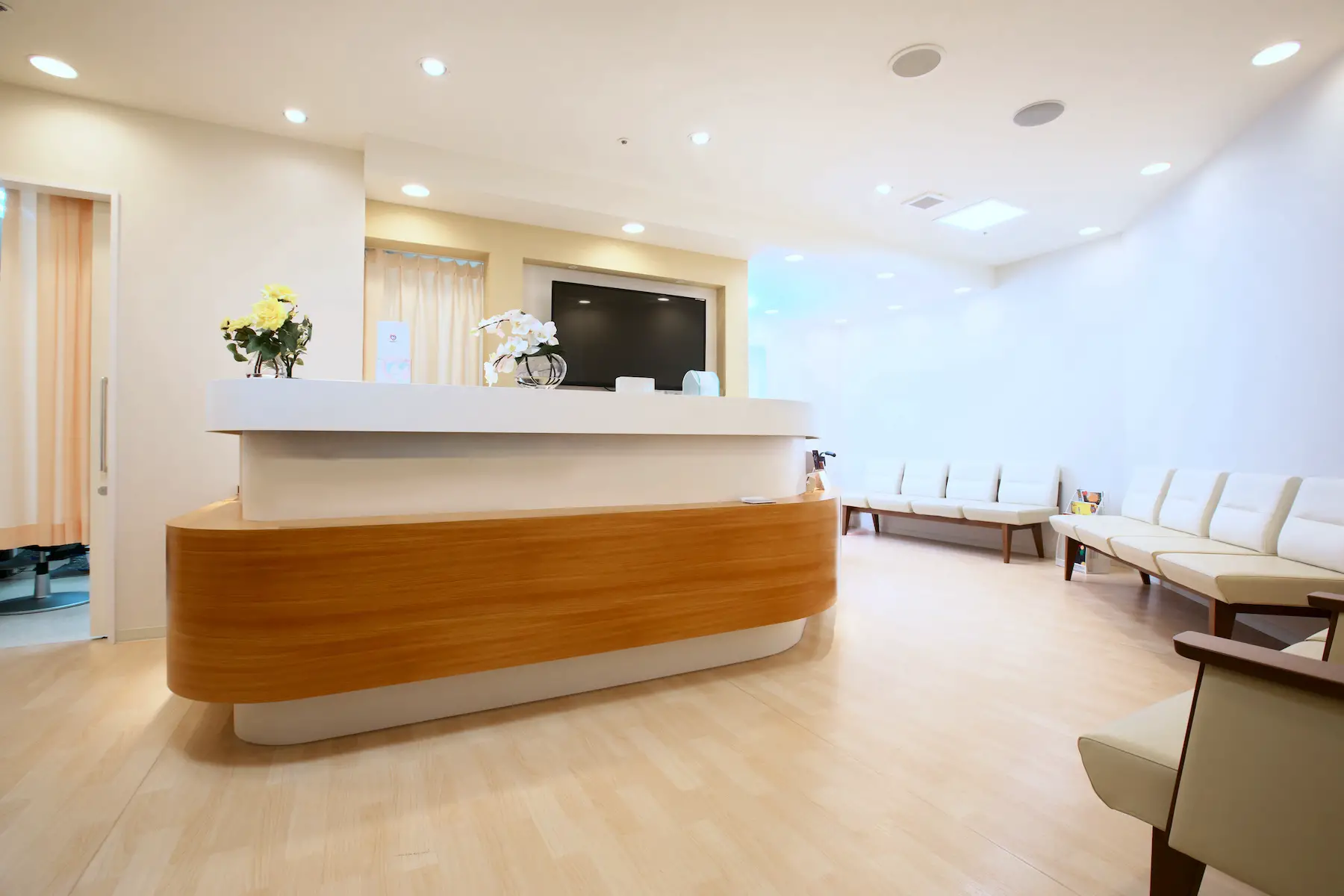
Patient fees are set according to a national schedule, which is strictly monitored by the MHLW. In 2025, you can typically expect to pay ¥5,000–10,000 for GP visits and ¥10,000–15,000 for specialist Consultations.
Of course, doctor fees will be higher when you visit a private health service.
Do I need health insurance in Japan?
Yes. Our article on Japanese health insurance explains everything in full detail, but as a quick summary:
- Public health insurance is mandatory for all long-term residents
- While public insurance covers most essential care, some treatments are excluded. Foreign nationals looking to avoid any large out-of-pocket payments should consider getting private (top-up) insurance.
There are many private health insurers in Japan, and it’s worth shopping around to find the best deals. Aside from the home-grown health insurance providers, there are also international insurers who cater specifically to expats. These providers are ideal for residents who travel outside the country a lot or simply prefer expat-focused care:
Overview of doctors’ services in Japan
Prescription medications
If necessary, the doctor may prescribe you medication, which you can pick up from any pharmacy (薬局) in Japan. To find one nearest to you, you can use any search engine or check a website like Yello. This site also lists emergency out-of-hours drugstores in your area. If you can’t go to the pharmacy in person, you can also order medication online from a service like Sundrug Pharmacy.

When picking up a prescription, you’ll typically need to pay 30% of the costs yourself. The drugstore will also charge a dispensing fee (調剤技術料) for preparing your medication. This is around ¥1,000–2,000 and is partially covered by insurance.
We advise expats using foreign medications to write down the generic brand name or the active ingredient of their medication. That’s because brand names can vary from country to country. For example, Zoloft in the US is sold as Lustra in Japan. However, the generic brand name is Sertraline.
Certain drugs are not allowed in Japan, even if you have a prescription. You can find more information about controlled and semi-controlled medicines on the government’s website.
Medical tests in Japan
Japanese medicine puts a high emphasis on preventative health treatments. Students even have a checkup each year at school to measure their height and weight.
Employees get an annual health check called an ippan kenko-shindan (般健康診断) or ippan kenshin (般健診). This routinely includes a chest X-ray and blood, urine, and stool samples. Doctors look for early signs of diabetes, liver disease, anemia, and cancer so they can begin treatment as soon as possible.
How to complain about a Japanese doctor or GP
If you want to file an official complaint about a doctor or GP in Japan, you must first raise it with the clinic or hospital directly. After that, you can contact the Japan Medical Association (日本医師会) or consult an expert through the Tokyo Intercultural Portal Site (TIPS).
Practical medical words in Japanese
In major cities in Japan, most hospitals and health centers have English-speaking staff. However, it is a good idea to have a phrasebook or a translator app on your phone in case you need to explain more complicated health issues. In some cases, you may also request an interpreter to assist you.
You’ll also want to remember some of these medical words in Japanese:
| English | Japanese | Pronunciation |
| primary care physician | かかりつけ医 | kakaritsuke-i |
| doctor’s office | 医院 | iin |
| appointment | 予約 | yoyaku |
| pain | 痛み | itami |
| headache | 頭痛 | zutsū |
| stomach ache | 腹痛 | fukutsū |
| back pain | 腰痛 | yōtsū |
| fever | 熱 | netsu |
| cough | 咳 | seki |
| prescription | 処方箋 | shohōsen |
| painkiller | 鎮痛剤 | chintsūzai |
Useful resources
- AMDA International Medical Information Center – provides translation assistance and help with making appointments
- Ministry of Health, Labour, and Welfare of Japan – official government website of the ministry responsible for Japanese healthcare
- Guide for when you are feeling ill – helpful guide from the Japan National Tourism Organization
